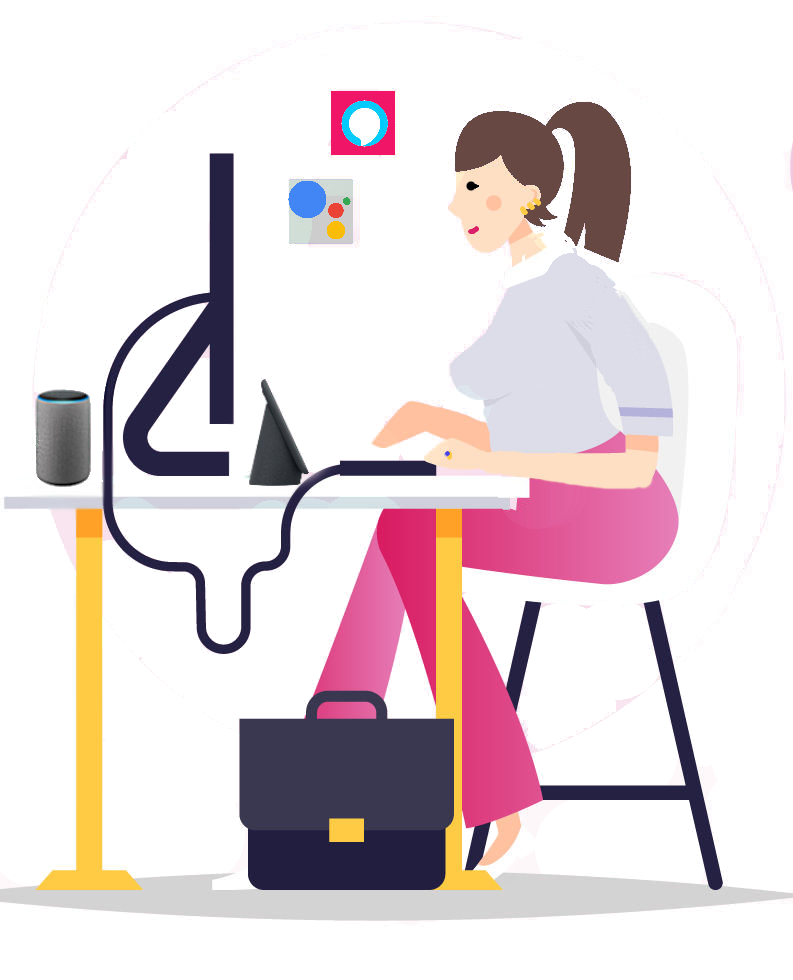Living with anxiety is tough. Sure, we all get anxious from time to time, but some people suffer from panic and feelings of stress and worry on a much more frequent and intense scale. I have suffered with anxiety my entire career as a freelance writer. It's caused me to turn down jobs, avoid meetings and more. If you are struggling with anxiety and it is getting in the way of your freelancing business, there are ways you can manage it and live a healthy and happy life. Whether you have an anxiety issue or think you might, or are just interested in helping a friend by knowing more, read this guide to anxiety.
coping with anxiety
What is Anxiety?
Anxiety manifests itself in different ways for different people. For some, it can be crippling panic attacks which are spurred on by feelings of inadequacy.
For others, anxiety is the feeling of wanting to be alone and isolating yourself from others. There is no one definition that fits all sufferers.
What are the Symptoms?
Having a panic attack can feel like dying. It often mimics the symptoms of a heart attack, asthma attack or even a seizure, so even the most level headed individual can feel convinced that the worst is about to happen.
Panic attacks are defined as moments of intense fear that is often irrational. This fear can cause physical symptoms as well as illogical thoughts and actions. They are often caused by stressful situations, but it can also be part of a mental disorder such as social anxiety or panic disorder.
There are some telltale signs of anxiety. These include:
Spending large portions of the day worrying or feeling nervous
The feeling that things are getting on top of you
Finding it hard to switch off
Muscular tension
Nausea
Sweating
Dizziness
Anxiety affects the way we feel and think and affect us physically. Usually, an anxious person will have a mindset that automatically zeros in on potential problems. For instance, they’ll worry about bad things happening and imagine worse case scenarios.
According to studies, most people will experience an attack in their lifetime. One in 10 have panic attacks at least occasionally, according to the UK National Health Service.
Often, there are no signs of a pending panic attack, leaving the suffer blindsided. Over time, a person may be able to determine what triggers the attack. Some triggers may include social confrontations or being exposed to a certain phobia, such as heights, arachnids or water.
Panic attacks can come with a wide range of symptoms. The symptoms can vary from person to person. Some common symptoms, though, are sweating, shaking, trouble breathing or hyperventilation, hot flashes or chills, tightness in your throat or trouble swallowing, headache, dizziness, faintness, chest pain stomach cramps and nausea. These symptoms can last up to thirty minutes and leave the person feeling drained of energy.
Chest pain shouldn’t be overlooked, even if one thinks it is a symptom of a panic attack. Anyone with chest pain should be examined by a medical professional.
What Causes A Person to be Anxious?
Just like there’s no magic cure, there’s no one answer that fits everyone. A person can become anxious for all different kinds of reasons. These can include our past experiences. If a person has experienced a lot of stressful situations, pressure at work or home, financial difficulties, etc, they are more likely to become anxious. The feeling of not being able to cope can grow from the smallest of situations and become a much bigger deal.
The medical community hasn’t come to a single consensus on what specifically causes panic disorder. Researchers believe that they may be caused by genetics, stress, history of abuse, trauma or changes in brain function.
Frequent panic attacks can turn into bigger physiological and social problem. The person may start avoiding situations to prevent new attacks. This can lead to depression, problems with work or school, suicidal thoughts or actions and other problems.
The person may begin to avoid situations that have brought on panic attacks in the past. This can lead to phobias. If the attacks get frequent and severe enough, they can eventually cause the sufferer to fear leaving their house at all - full blown agoraphobia.
How Can I Learn To Manage My Anxiety?
It is possible to manage anxiety and live a worry-free, stress-free life. There are a few things that you can do to help.
Firstly you need to understand your anxiety. What are your triggers, when do they occur, how does it feel? Once you’ve understood how your anxiety presents itself you can deal with it. There are plenty of materials out there and mantras that people with anxiety adopt. This is to help them to fight their unhelpful thoughts and be more realistic. For instance, if you’re prone to worrying about the smallest things, ask yourself how realistic are your fears, can you change the situation, is the worry helping? It helps to challenge our negative thoughts and try to realize we're being too hard on ourselves.
There are hospitals, support groups, and programs to help people with anxiety issues. For example, the Compass Health Center helps adults with OCD and Complex Anxiety Disorder. Self-help is great, but it also helps to have some additional support. Especially when experts can teach us how to spend less time worrying and how to relax.
If a person is diagnosed with panic disorder, which consists of chronic panic attacks, treatment will be necessary. Psychotherapy and/or medications may prescribed.
Cognitive behavioral therapy, a type of psychotherapy, is often used to change the thinking patterns that may cause new attacks. Another form of psychotherapy, called psychodynamic psychotherapy, is used to make the patient aware of thoughts and behaviors that cause the attacks. The person may also be exposed, repeatedly, to the trigger of the attacks to lessen the fear of the situation.
Even though panic attacks and anxiety can be scary for the suffer, they are not life threatening. Proper treatment can free a person and allow them to concentrate on their freelancing business.
Resources
For more information on managing emotions, see this helpful article What is Emotional Intelligence? +18 Ways To Improve It. My Move also has a wellness guide for those who may be experiencing anxiety during major life moments, such as moving during the pandemic. It includes helpful wellness apps for productivity, self care tools for the mind and body, and stress management tips.
Be sure to check out these articles, too:






